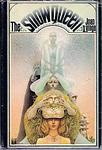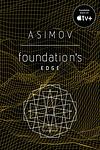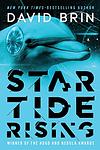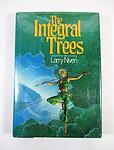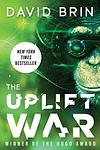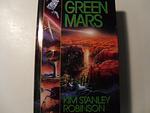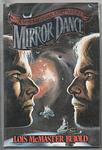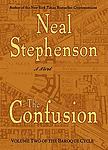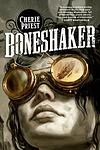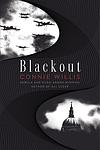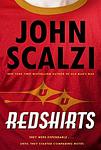Locus Award for Best Science Fiction Novel
This is one of the 286 lists we use to generate our main The Greatest Books list.
-
Titan by John Varley
"Titan" is a science fiction novel that follows the journey of a crew aboard a spacecraft sent to explore Saturn's moon, Titan. The mission takes an unexpected turn when they encounter a massive, wheel-shaped space station that orbits the moon, which they name "Gaea." Upon entering, the crew discovers a complex, living world filled with bizarre creatures and landscapes, governed by a mysterious entity that calls itself Gaea. As the crew members explore this strange environment, they must navigate the challenges of this alien ecosystem, as well as the interpersonal dynamics within their group, while trying to understand the nature of Gaea and find a way to survive and possibly communicate with this enigmatic intelligence.
-
The Snow Queen by Joan D. Vinge
In this science fiction retelling of a classic fairy tale, a young woman with telepathic abilities must navigate a complex interstellar society ruled by a powerful and enigmatic figure known as the Snow Queen. The protagonist's journey is one of self-discovery and rebellion as she seeks to rescue her beloved, who has been ensnared by the Snow Queen's influence. Set against a backdrop of political intrigue, ecological concerns, and the cyclical nature of change, the story explores themes of love, identity, and the struggle for freedom within a universe where technology and ancient myth intertwine.
-
The Many-Colored Land by Julian May
In "The Many-Colored Land," a group of misfits and adventurers from the 22nd century, disillusioned with the technologically advanced and psychically-gifted society they live in, volunteer to travel back in time to the Pliocene Epoch through a one-way time portal. Upon arrival, they expect an idyllic existence but instead find themselves in a dangerous world dominated by alien races—the exotic and psychic Tanu and the savage, beastly Firvulag. The travelers must navigate a complex social hierarchy and confront their own personal demons while struggling to survive in this prehistoric land, where they are forced to choose sides in an epic conflict that predates human history.
-
Foundation's Edge by Isaac Asimov
In this science fiction novel, the protagonist, Golan Trevize, is sent on a quest to discover the origins of the Foundation, a society established to preserve knowledge and culture in the galaxy. Alongside a scholar, Janov Pelorat, and a telepathic woman, Bliss, Trevize's journey leads them beyond the boundaries of the known galaxy to two secretive worlds: Gaia, a planet with a collective consciousness, and Earth, the long-forgotten origin planet of humanity. The novel explores themes of free will versus determinism, the role of individuality within a collective society, and the search for a balanced path to galactic harmony, all while questioning the validity of the Seldon Plan, a predictive model for the future of civilization.
-
Startide Rising by David Brin
In this science fiction novel, a spaceship crewed by a unique ensemble of genetically enhanced dolphins, a few humans, and a chimpanzee, finds itself stranded on a water world after a disastrous first contact with an alien fleet. The crew, aboard their vessel designed for interspecies cooperation, must navigate complex social dynamics and external threats as they repair their ship. Meanwhile, they are caught in the crossfire of a galactic conflict, with various alien races eager to capture the ship's secrets, including the knowledge of a long-lost fleet of starships from a mysterious and powerful race. The crew's survival hinges on their ability to work together and utilize their combined intelligence, while they also grapple with the implications of their evolutionary advancements and the responsibilities that come with them.
-
The Integral Trees by Larry Niven
In a distant future, humans inhabit a gas torus, a ring of breathable atmosphere around a neutron star, where they have adapted to life in free fall within this unique environment. The story follows a group of these humans who live among the "Integral Trees," gigantic, sky-spanning plants with their roots and branches extending in both directions away from a central trunk, in zero gravity. When the ruling order on one of the trees begins to falter, a small band of intrepid characters embarks on a journey that reveals the complex ecosystem of the torus and the intricate society that has evolved there. As they navigate the challenges of their three-dimensional world, they uncover secrets that could change their society forever, exploring themes of adaptation, survival, and the human spirit's unyielding drive to explore and understand its surroundings.
-
The Postman by David Brin
In a post-apocalyptic America, where civilization has collapsed and survival is a daily struggle, a lone wanderer accidentally becomes a symbol of hope. Taking on the identity of a postal worker from the long-defunct United States Postal Service, he dons an old uniform and begins delivering mail, initially as a means to scavenge for food and shelter. However, his actions inspire others, and what starts as a deception evolves into a movement. The protagonist's journey transforms him into a leader who inadvertently unites disparate communities and reignites a sense of unity and purpose, becoming a catalyst for the reconstruction of society amidst the chaos and desolation of a fallen world.
-
Speaker for the Dead by Orson Scott Card
In the sequel to a science fiction classic, humanity faces the complex consequences of its past actions. The protagonist, a once-revered child military genius, now serves as a "Speaker for the Dead," a role dedicated to telling the true stories of the deceased. He travels to a distant world to speak for a deceased researcher and becomes embroiled in the tensions between the human colonists and the planet's enigmatic indigenous species. As he unravels the mysteries surrounding the researcher's death, he confronts his own history and seeks redemption by fostering understanding and empathy between the two intelligent species, hoping to prevent the cycle of violence and misunderstanding that has plagued human history.
-
The Uplift War by David Brin
In a science fiction universe where a galactic civilization is built on the patronage and "uplift" of pre-sentient species into intelligence, a human colony on a distant planet finds itself embroiled in an interstellar war. The planet's inhabitants, including humans, their uplifted chimpanzee allies, and other indigenous species, must navigate the complex politics and military strategies of various alien races. As they struggle to defend their home and assert their place in the cosmos, they uncover deeper mysteries about the origins of intelligence and the true nature of uplift, challenging the established order of their star-spanning society.
-
Cyteen by C. J. Cherryh
The book is a complex tale of political intrigue, identity, and psychological manipulation set in a distant future where humanity has colonized space. At the heart of the story is a brilliant young scientist who is a clone of a powerful political leader, raised to replicate her predecessor's talents and maintain her faction's dominance. As the clone grows up in a controlled environment designed to shape her into a replica of the original, she begins to question her identity and the motives of those who created her. The narrative explores themes of nature versus nurture, the ethics of cloning, and the struggle for power within the labyrinthine structures of a spacefaring civilization's government and scientific community.
-
Hyperion by Dan Simmons
The book is a science fiction narrative that weaves together the tales of seven pilgrims as they journey to the distant world of Hyperion on the eve of interstellar war. Each pilgrim has their own reason for undertaking this pilgrimage to the Shrike, a mysterious and feared creature that resides in the Time Tombs, which are moving backwards through time. As they travel, they share their stories, revealing personal quests, humanity's complex relationship with technology, and the overarching mystery of the Shrike and Hyperion itself. The novel combines elements of space opera with a frame story structure reminiscent of "The Canterbury Tales," exploring themes of love, religion, politics, and art, all set against the backdrop of an impending catastrophe.
-
The Fall of Hyperion by Dan Simmons
In this sequel to a science fiction saga, the story continues as a group of pilgrims trapped on the planet Hyperion face the looming threat of the Time Tombs, which are traveling backward through time. Meanwhile, the interstellar Hegemony they once belonged to is on the brink of war with the Ousters, a group of spacefaring barbarians. As the complex political machinations unfold, the pilgrims' personal tales intertwine with the fate of the universe, revealing their connections to the mysterious Shrike—a creature that may hold the key to humanity's salvation or its ultimate destruction. The narrative weaves together multiple timelines and perspectives, exploring themes of memory, destiny, and the nature of intelligence.
-
Barrayar by Lois McMaster Bujold
In this science fiction novel, a woman finds herself navigating the complex political landscape of a recently rediscovered planet with a feudal society. As the wife of the Regent, she must protect her unborn child from various threats, including a deadly political coup. With her quick wit and strategic mind, she allies with a network of loyalists to safeguard the future of the planet's monarchy and ensure the safety of her family. The story is a rich tapestry of intrigue, honor, and the challenges of adapting to a new world while facing the machinations of power-hungry adversaries.
-
Doomsday Book by Connie Willis
In this science fiction novel, a young historian undertakes a time-travel journey to the 14th century for academic research, only to find herself stranded amidst the onset of the Black Death. As she navigates the challenges of medieval England, her colleagues in the 21st century grapple with a deadly influenza pandemic, complicating efforts to retrieve her. The narrative weaves between the past and the present, exploring themes of human resilience, the universality of suffering across time, and the ethical implications of time travel, all while the historian and her contemporaries confront mortality, history, and their own personal crises.
-
Green Mars by Kim Stanley Robinson
In the sequel to the epic tale of Martian colonization, the narrative continues to follow the struggles and developments of the settlers as they advance their terraforming efforts on the Red Planet. The second installment delves deeper into the political, social, and ecological challenges faced by the burgeoning Martian society. As the planet's surface begins to turn green with the spread of plant life, the colonists grapple with the complexities of creating a new world, dealing with the conflicting interests of Earth's transnational corporations, and the emergence of unique Martian cultural and political identities. The story weaves together the lives of the original colonists and the new generation of Martians, exploring themes of revolution, adaptation, and the human spirit's unyielding quest for a better future.
-
Mirror Dance by Lois McMaster Bujold
In this science fiction novel, a young man with a desire to prove himself and find his place in the universe impersonates his clone brother, a high-ranking noble and military commander. His reckless attempt to undertake a mercenary mission goes disastrously wrong, leading to his capture and torture by enemies. Meanwhile, his brother must navigate political intrigue and familial bonds to rescue him. As they confront their shared past and uncertain future, the brothers grapple with questions of identity, loyalty, and redemption, set against the backdrop of a complex interstellar society.
-
The Diamond Age by Neal Stephenson
Set in a future where nanotechnology has revolutionized society, the narrative revolves around a young girl named Nell who comes into possession of a powerful, interactive book called "A Young Lady's Illustrated Primer." This book, designed to educate and guide a young girl to a more enlightened state, was originally intended for an elite clientele but falls into Nell's hands by chance. As Nell uses the primer to navigate her complex, cyberpunk world, the story explores themes of education, social class, and the impact of technology on society. The book weaves together the lives of various characters across different strata of a stratified culture, examining how access to technology can both empower and divide.
-
Blue Mars by Kim Stanley Robinson
The novel concludes a trilogy that chronicles the colonization and terraforming of Mars, exploring the complex interactions between politics, science, and ecology in the process. As the Martian society stabilizes after a period of revolution and unrest, the inhabitants of the red planet grapple with the long-term implications of their transformation, both for their own society and their relationship with Earth. The narrative delves into the lives of the colonists who have become the first Martians, addressing themes of longevity, environmental responsibility, and the quest for a sustainable future for humanity across two worlds. With a backdrop of a vividly imagined Martian landscape, the story reflects on the human capacity for adaptation and the ethical dimensions of altering an entire planet's ecosystem.
-
The Rise of Endymion by Dan Simmons
In this science fiction epic, the final installment of a series, the narrative follows the journey of a man tasked with protecting a young girl who has the potential to influence the fate of humanity. Set in a far-future universe where the Catholic Church has become a dominant spacefaring entity, the pair travels through various worlds, evading the Church's forces and its leader, who seeks to harness the girl's unique abilities for his own ends. The story weaves together themes of love, sacrifice, and the struggle against oppressive powers, culminating in a climactic battle that will determine the course of human evolution and the true nature of the cosmos.
-
To Say Nothing of the Dog by Connie Willis
In this comedic science fiction novel, a time-traveling historian is sent back to Victorian England to recover a missing artifact and correct a temporal anomaly that threatens to alter history. Amidst the chaos of trying to adhere to the peculiarities of the era, he must also deal with an eccentric cast of characters, including a lovable but troublesome bulldog. As he navigates the complexities of time travel and the nuances of historical events, the protagonist finds himself entangled in a series of humorous misadventures that challenge the very rules of time and space, all while trying to ensure the past remains intact.
-
Cryptonomicon by Neal Stephenson
The book is a sprawling narrative that intertwines two timelines: the first during World War II, focusing on the efforts of cryptographers and mathematicians working to break Axis codes, and the second in the late 20th century, following a group of entrepreneurs and hackers establishing a data haven in Southeast Asia. The novel explores themes of cryptography, mathematics, and the history of computing, weaving together real historical figures with fictional characters. As the plot unfolds across different continents and eras, it delves into the impact of information technology on society and the perpetual conflict between governments and individuals over the control of information and privacy.
-
The Telling by Ursula K. Le Guin
In this science fiction narrative, a woman from Earth travels to a distant planet that has recently joined an interstellar collective. Upon arrival, she discovers that the planet's unique culture, which is deeply rooted in storytelling and oral tradition, is being systematically eradicated by a repressive regime that seeks to align all societies under a homogenized set of beliefs and practices. As she becomes more immersed in the local way of life, she learns the power and significance of their stories, leading her to question the nature of truth and the importance of cultural preservation in the face of authoritarian control. Through her journey, the novel explores themes of memory, resistance, and the intricate relationship between language and identity.
-
Passage by Connie Willis
In this speculative fiction novel, a psychologist teams up with a neurologist to explore the phenomenon of near-death experiences (NDEs) by using advanced technology that induces and controls these experiences. As they delve deeper into the mysteries of the afterlife, the protagonist becomes increasingly obsessed with understanding what lies beyond life, leading to a series of intense and personal experiments. The narrative weaves together themes of life, death, and the possibility of an afterlife, while also exploring the ethical implications of such research and the profound impact it has on the individuals involved.
-
The Years of Rice and Salt by Kim Stanley Robinson
The book is an alternate history novel that explores a world in which the Black Death plague of the 14th century was far more lethal to Europeans, nearly wiping them out. As a result, world history is dramatically reshaped: Islamic and Buddhist societies emerge as the dominant global powers, leading to vastly different technological, cultural, and social developments. The narrative spans several centuries, following a group of characters who are reincarnated into various lives and roles, allowing the reader to experience the evolution of this alternate world through their interconnected stories. The novel delves into themes of history, religion, technology, and human nature, all while imagining a world both familiar and strange, shaped by different forces and ideas than those that have shaped our own history.
-
Ilium by Dan Simmons
In this science fiction epic, classical literature and futuristic technology collide as scholars from a distant future resurrect the events of Homer's "Iliad" on an alternate Mars. The narrative intertwines the lives of ancient Greek heroes, sentient robots from Jupiter's moons, and the last remnants of humanity on an Earth transformed by post-human beings of immense power. As the reenacted Trojan War unfolds with god-like beings intervening, the separate storylines converge to reveal a complex tapestry of time manipulation, existential threats, and a quest for knowledge that could unravel the very fabric of the universe.
-
The Baroque Cycle by Neal Stephenson
The Baroque Cycle is an expansive historical fiction series that weaves together a rich tapestry of themes including science, politics, philosophy, and adventure during the late 17th and early 18th centuries. The narrative follows an eclectic cast of characters, ranging from natural philosophers and mathematicians to pirates and nobles, as they navigate the complex socio-political transformations of the Enlightenment era. The series delves into the origins of modern finance, the scientific revolution, and the geopolitical power shifts of the time, all while exploring the intricate interplay between the emerging modern world and the intricate, ornate culture of the Baroque period.
-
Accelerando by Charles Stross
The book is a visionary exploration of the future, chronicling the life of a family over several generations as they navigate a world undergoing rapid technological change and the singularity—a point where artificial intelligence surpasses human intelligence. The narrative delves into the implications of such advancements, including the transformation of society, the economy, and even the fabric of reality itself. As the characters adapt to living in a post-human cosmos, they confront challenges ranging from the rise of sentient corporations to the colonization of the solar system, painting a complex tapestry of a future where humanity must evolve beyond its biological origins to survive in an increasingly digital and autonomous universe.
-
Rainbows End by Vernor Vinge
Set in the near future, the novel explores a world transformed by technological advancements in communication, security, and augmented reality. The protagonist, a man who has recovered from Alzheimer's thanks to new medical technology, struggles to adapt to the fast-paced changes and reconnect with his estranged family. As he navigates this brave new world, he becomes entangled in a complex plot involving an omnipresent surveillance system, a potential global conspiracy, and the power of information control. The story delves into themes of intelligence, consciousness, and the impact of technology on society, questioning the nature of reality in a digitized age.
-
The Yiddish Policemen's Union by Michael Chabon
In an alternate reality where Jewish refugees found sanctuary in Alaska during World War II, the book follows a homicide detective in the Yiddish-speaking metropolis of Sitka as he investigates the murder of a former chess prodigy. The detective's quest takes him from the city's seedy underbelly to the highest echelons of power, and he uncovers a vast conspiracy that threatens the very existence of the Jewish homeland in Alaska. The novel is a blend of detective fiction, alternate history, and Jewish humor.
-
Anathem by Neal Stephenson
In a parallel world where intellectuals and scientists are cloistered in monastic communities called "concents," the story follows a young monk named Erasmas, who is drawn out of his secluded life by the discovery of an alien spacecraft orbiting his planet. As he and his companions are selected to interact with these extraterrestrial visitors, they are thrust into a complex web of political intrigue, philosophical debate, and existential risk. The narrative weaves together themes of mathematics, quantum mechanics, and multiple world theory, challenging the characters to question the nature of reality and their place within it as they strive to avert global catastrophe.
-
Boneshaker by Cherie Priest
Set in an alternate 1880s Seattle, the novel unfolds in a world where a devastating mining invention has unleashed a toxic gas, turning many of the living into ravenous undead creatures. Amidst this chaos, a determined mother ventures into the walled-off, zombie-infested city to clear her husband's name from the creation of the catastrophic machine and to rescue her son, who has ventured into the dangerous quarantined zone. As she navigates the steampunk dystopia filled with airships, pirates, and a relentless will to survive, she uncovers dark secrets and faces the horrors that have taken over the once-thriving city.
-
Blackout/All Clear by Connie Willis
This two-volume science fiction narrative follows a group of historians from 2060 who travel back to World War II-era England for research purposes. However, their mission goes awry when they become trapped in the past due to irregularities in the time travel system. As they navigate the dangers of the Blitz and other historical events, they must also confront the possibility that their actions could alter history. The characters grapple with the chaos of war, the intricacies of time travel, and the moral dilemmas of potentially impacting the future, all while trying to find a way back to their own time.
-
Embassytown by China Miéville
In a distant future on the edge of the known universe, humans coexist with the enigmatic Ariekei, aliens who communicate through a unique language that requires absolute truth and simultaneous speech by two voices. The human colonists of Embassytown rely on genetically engineered Ambassadors to converse with the Ariekei, but when a new Ambassador arrives, their presence disrupts the delicate balance of this relationship. The novel explores themes of language, colonialism, and the nature of communication as the protagonist, a human woman with a deep connection to the Ariekei, navigates the ensuing chaos and seeks to prevent the collapse of the society she knows.
-
Redshirts by John Scalzi
In this satirical science fiction novel, the story follows the adventures of a group of ensigns aboard the Universal Union's flagship Intrepid. They quickly realize that their ship's officers are frequently embroiled in dramatic and dangerous missions, while the lower-ranked crew members—often clad in red shirts—have a startlingly high mortality rate. The ensigns come to the shocking conclusion that they are actually characters in a badly written television show, and they must navigate a metafictional quest to confront their creators and change their fates to avoid being expendable casualties in the next away mission. The novel plays with the tropes of classic space operas and the concept of narrative determinism, delivering both humor and existential inquiry into the nature of free will and destiny.
-
Abaddon's Gate by James S. A. Corey
In this science fiction novel, humanity is faced with a new frontier when a mysterious alien artifact known as the Ring appears near the edge of the solar system. Various factions, including Earth's government, Martian military, and the Outer Planets Alliance, converge on the Ring, each with their own agendas. As tensions rise, a ragtag crew aboard a salvaged warship is thrust into the center of potential conflict. With the artifact acting as a gateway to unknown parts of the universe, the crew must navigate political intrigue, personal vendettas, and the very real possibility of first contact with an alien intelligence, all while trying to prevent an interstellar war that could end humanity's future before it has a chance to begin.
-
Ancillary Sword by Ann Leckie
In this science fiction novel, the protagonist, a former starship AI now housed in a human body, is sent on a mission to secure a star system as a fleet captain. Amidst political intrigue and social unrest, she must navigate complex relationships with her crew and the system's inhabitants while confronting her own identity and the shadowy forces at play within the empire. As she delves deeper into the system's issues, she uncovers a web of secrets that challenge her understanding of justice and her role in the universe.
-
Ancillary Mercy by Ann Leckie
In the final installment of a science fiction trilogy, the protagonist, a human-form AI once linked to a starship and its ancillary soldiers, continues her quest for vengeance and justice. Now in command of a small ship, she faces the complexities of political intrigue and the challenges of leadership amidst an impending civil war within a vast interstellar empire. With the help of her diverse crew and allies, she confronts the question of what it means to be independent and human while navigating the moral ambiguities of power and the intricacies of personal relationships, all while seeking to secure a future for her home and the people she has come to care for.
-
Death's End by Cixin Liu
In this science fiction epic, humanity confronts an uncertain future as the universe teeters on the brink of destruction. The narrative weaves through time and space, following a complex tapestry of characters and civilizations as they grapple with advanced alien technologies, cosmic dilemmas, and philosophical quandaries. The story explores the depths of human ingenuity and the vastness of the cosmos, culminating in a profound examination of survival, sacrifice, and the indomitable spirit of life in the face of an unfathomable cosmos. With a blend of hard science fiction and imaginative speculation, the novel pushes the boundaries of human understanding and presents a grand vision of the ultimate fate of the universe.
-
The Collapsing Empire by John Scalzi
In "The Collapsing Empire," humanity has spread across the galaxy thanks to a network of extradimensional pathways known as the Flow, which makes interstellar travel possible. The Flow is controlled by the powerful Interdependency, a quasi-feudal empire that relies on the pathways to maintain its political and economic dominance. However, when it's discovered that the Flow is shifting and may soon disappear, the empire faces the threat of collapse. As various factions vie for power and survival, a scientist, a starship captain, and a member of the ruling elite embark on a desperate quest to uncover the truth about the Flow's instability and seek a way to save human civilization from impending doom.
-
The Calculating Stars by Mary Robinette Kowal
In this alternate history novel, a cataclysmic meteorite strike in the 1950s accelerates the space race due to fears of Earth becoming uninhabitable. The story follows a brilliant mathematician and former WASP pilot who battles the era's sexism and racism to become an astronaut. She and her diverse colleagues work against time to colonize space and ensure humanity's survival, while she also deals with personal struggles and the psychological toll of her ambitions. The narrative combines the tension of space exploration with the social dynamics of mid-20th century America, creating a compelling vision of what might have been if women had been at the forefront of the space race.
-
The City in the Middle of the Night by Charlie Jane Anders
Set on a tidally locked planet where one side perpetually faces the sun while the other is shrouded in endless night, this novel follows the intertwined lives of two young women. One, a working-class student, is exiled into the night after a rebellious act, where she discovers a city thriving in the darkness. The other, a privileged but disillusioned socialite, seeks to change the corrupt society from within. Their paths cross as they become entangled in a struggle against an oppressive regime and encounter an alien species with a unique perspective on life. Together, they must navigate a world of extreme inequality and environmental peril, challenging their beliefs and fighting for a better future.
-
Network Effect by Martha Wells
In this science fiction novel, the protagonist, an artificial intelligence with a sarcastic personality and a penchant for self-preservation, finds itself and its human companions embroiled in a complex mystery. The AI, which typically inhabits a humanoid robot body, must navigate treacherous political landscapes and confront its own past while attempting to protect its friends from a multitude of threats. As the group is pulled into a dangerous situation involving an alien artifact and a missing colony, the AI must leverage its unique abilities and wit to unravel the conspiracy and ensure their survival. The narrative combines action, humor, and emotional depth as the AI grapples with its identity and the meaning of personhood.
-
A Desolation Called Peace by Arkady Martine
In this enthralling space opera sequel, an interstellar empire faces an enigmatic alien threat at the edges of its territory. Diplomats and military personnel must navigate complex political intrigue and cultural misunderstandings to prevent a devastating war. At the heart of the story is a brilliant ambassador who must use her linguistic expertise and strategic acumen to communicate with the alien species, while also contending with internal factions vying for power. As the situation escalates, the characters are forced to confront their own identities and the implications of empire, colonization, and what it means to be truly alien.
Locus Awards, 43 Books
The Locus Award for Best Science Fiction Novel is one of the annual Locus Awards presented by the science fiction and fantasy magazine Locus. Awards presented in a given year are for works published in the previous calendar year. The award for Best Science Fiction Novel was first presented in 1980, and is among the awards still presented (as of 2022). Previously, there had simply been an award for Best Novel. A similar award for Best Fantasy Novel was introduced in 1978.[1] The Locus Awards have been described as a prestigious prize in science fiction, fantasy and horror literature
Added over 1 year ago.
This list has a weight of 12%. To learn more about what this means please visit the Rankings page.
Here is a list of what is decreasing the importance of this list:
- List: only covers 1 year (yearly book awards, best of the year, etc)
- List: only covers 1 specific genre
If you think this is incorrect please e-mail us at [email protected].

